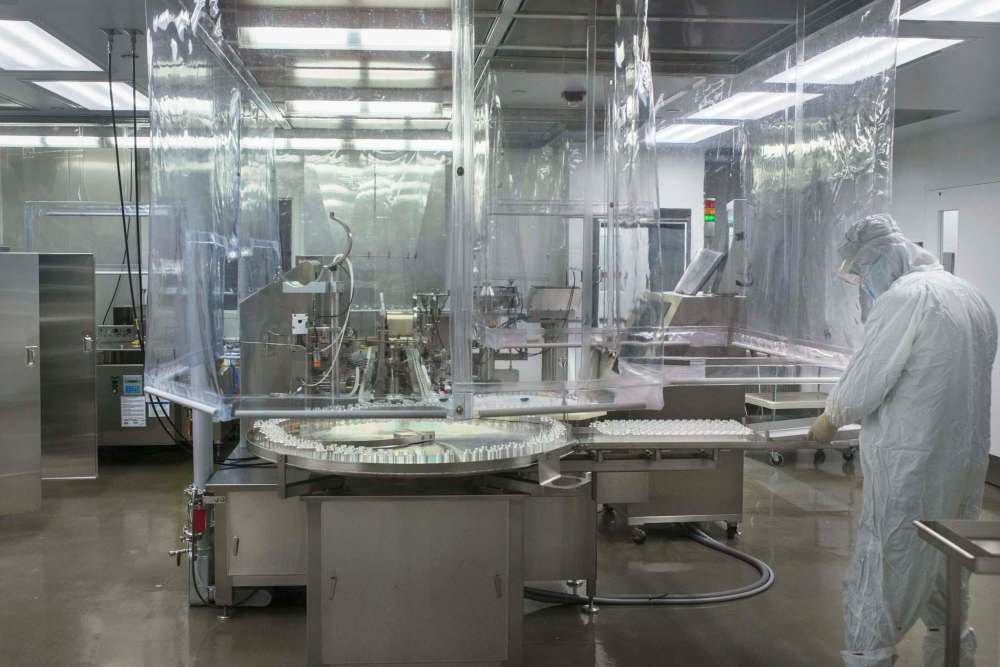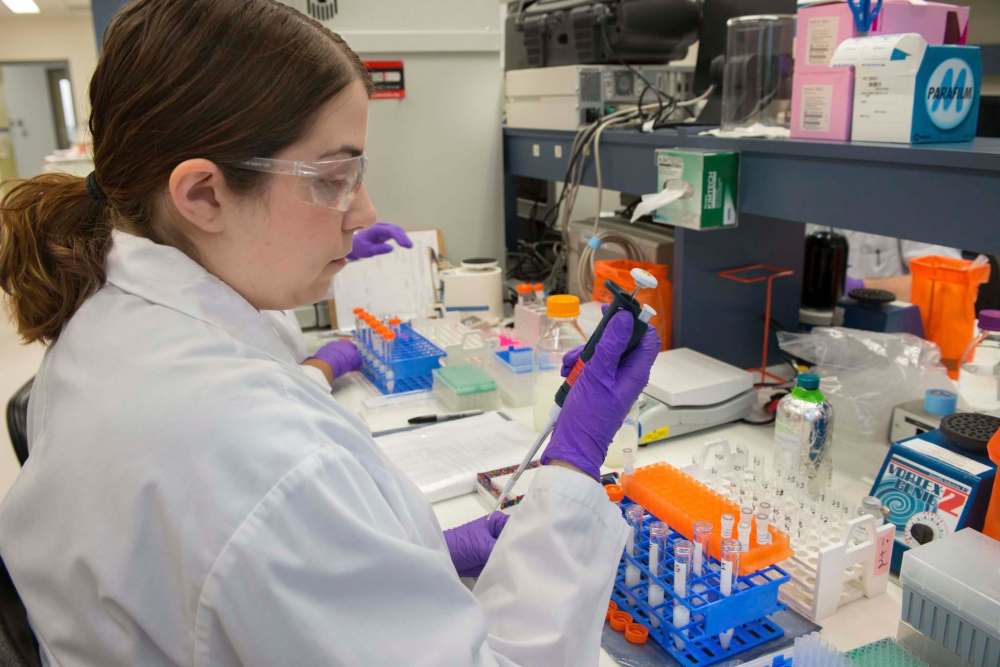City firm races to develop treatment for COVID-19
Emergent BioSolutions works on two therapeutics in fight against coronavirus
Advertisement
Read this article for free:
or
Already have an account? Log in here »
To continue reading, please subscribe:
Monthly Digital Subscription
$1 per week for 24 weeks*
- Enjoy unlimited reading on winnipegfreepress.com
- Read the E-Edition, our digital replica newspaper
- Access News Break, our award-winning app
- Play interactive puzzles
*Billed as $4 plus GST every four weeks. Offer only available to new and qualified returning subscribers. Cancel any time.
Read unlimited articles for free today:
or
Already have an account? Log in here »
Hey there, time traveller!
This article was published 13/03/2020 (1817 days ago), so information in it may no longer be current.
Scientists at Emergent BioSolutions in Winnipeg are working to fast-track a couple of drugs that could treat COVID-19 patients, using the same kind of hyperimmune plasma-based methodology that was developed in the city by Cangene Corp.
Emergent, a Maryland-based company that acquired Cangene six years ago, is using that drug development program to produce a couple of different therapeutics: one that could treat severe, hospitalized patients and another that would act as a preventative, for instance for health care workers or people who are at high risk, such as the elderly or people with compromised immune systems.
The process involves using human (and equine) plasma from donors whose immuno-system is producing the kind of antibodies required. The targeted antibodies are then purified out.

The company is partnered with another U.S. firm that is working on a vaccine, which would use another Emergent manufacturing facility in the U.S.
Laura Saward, senior vice-president and head of Emergent’s therapeutics business unit in Winnipeg, said the company just completed the second phase of clinical trials on a drug to treat patients hospitalized with influenza A. “We can use that infrastructure to quickly jump-start a program on the coronavirus,” Saward said. “So we have a program in a very similar indication and we are already collecting plasma and testing. We can use that infrastructure setup for this program.”
The second product is derived from equine plasma with antibodies. It’s being developed as a potential treatment for hospitalized patients.
The company has started collecting both human and equine plasma for the undertaking. Its goal is to manufacture clinical material within the next four to five months.
Saward said the company is deploying substantial resources to the projects in the hopes of potentially getting to clinical trials as early as the third quarter of this year. Emergent’s stock closed up 22 per cent on Friday, nearing its all-time high.
Much of the work will be done at Emergent’s Winnipeg labs, which employ 370 people.
Saward said that since the company has licensed seven products with the U.S. Food and Drug Administration and Health Canada, both regulatory agencies are familiar enough to allow the development to proceed with few barriers.

“We have a really good sense of what they need from us,” she said. “It’s great they will have the ability to talk to us frequently.”
She said she knows there’s concern about how long it takes to develop drugs and get them to the approval stage.
“We are not changing that paradigm… but we are using a platform that has had several drugs approved on,” Saward said. “We have done it in the past where we are able to go quickly through the phases.”
A preventive therapeutic involves introducing the antibodies to the patient. It’s considered passive immunization to prevent infection.
With a vaccine, the patient develops his or her own antibodies.
Darren Fast, the director of the University of Manitoba’s partnerships and innovation, who manages the commercialization of U of M-produced intellectual property, said the hyperimmune methodology is a straightforward approach to try to get a handle on the viral outbreak.
“They create an immune response to an antigen, in this case the virus,” Fast said. “They use (the plasma from) people who have generated an immune response, collect some antibodies from them, purify out just the antibodies, which are the business end of the response, and then give that to the COVID-19 patients.”

Before being acquired by Emergent, Cangene Corp. used that process to produce treatments for anthrax, botulism and complications that sometimes result from smallpox vaccination, on behalf of the U.S. government’s bio-defence administration.
Emergent’s work is not the only example of Winnipeg scientists working on a treatment or vaccine for COVID-19.
Dr. Brian Mark, a University of Manitoba microbiology professor, is part of a team that’s researching antiviral responses to COVID-19. The team has received $500,000 from the federal government. Mark’s role in the collaboration is to seek out molecular weaknesses to work toward creating a vaccine or antiviral response.
martin.cash@freepress.mb.ca

Martin Cash
Reporter
Martin Cash has been writing a column and business news at the Free Press since 1989. Over those years he’s written through a number of business cycles and the rise and fall (and rise) in fortunes of many local businesses.
Our newsroom depends on a growing audience of readers to power our journalism. If you are not a paid reader, please consider becoming a subscriber.
Our newsroom depends on its audience of readers to power our journalism. Thank you for your support.


